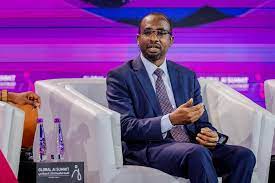Kashifu Inuwa, who serves as the Director-General of the National Information Technology Development Agency (NITDA), has stated that the Agency has the lofty goal of fostering the growth of a healthy community of artificial intelligence (AI) developers across the nation.
This was said by Inuwa when he was meeting instructors and some beneficiaries of the NITDA AI Developers Training (NAIDT), who were on a thank-you visit to the Agency’s Headquarters in Abuja to present him with an award for his exceptional dedication and great support for the training initiative. Inuwa made this statement when they were there.
The training that was organised by NITDA, through the National Centre for Artificial Intelligence and Robotics (NCAIR), in partnership with the Google Developers Group (GDG), has resulted in the creation of instructors, startup companies, and job prospects for those who participated in the programme.
The curriculum included a total of 1227 beneficiaries spread across 10 cohorts. These individuals have participated in a series of training sessions and listened to a number of lectures in order to strengthen their programming skills in the areas of artificial intelligence and machine learning.
According to Inuwa, the Agency has accomplished what it set out to do during the pilot project in Abuja, and it will be extended to other states. The experimental project was in Abuja.
Read also: NITDA, the GAGE company to co-create Africa International Tech Expo
Remark of NITDA’s Director-General
According to NITDA’s Director-General, the goal is to establish a community of software developers across the nation in which individuals can come to learn, and then use what they have learned to either teach others or launch their own enterprises in order to have an effect on society.
In his words: “I believe we can start with three states this year, then strategize on how we can take it to other states; with time, extend it to local governments. Because This is driven by my firm belief that in Nigeria, our most valuable asset as a nation is our human capital.”
“I want to know how many people participated, and how many females, to ensure gender balance, and I want to know who and who have started businesses from this training and who and who are making money. This will help us to mentor others because the idea is not just to train people but after training, to connect them with jobs or to inspire and mentor them to start their own businesses.”
Further details
He went on to say that the NAIDT platform could be used to develop indigenous super applications such as generative artificial intelligence and language modelling. After that, a Proof-of-Concept (POC) could be carried out with NITDA, and the project could then be expanded across the entire government.
“This is because the government is also pushing for digitisation. Digitising government services will help the government save a lot of costs as well as improve the efficiency of service delivery.”
Engr. Ya’u Garba, the National Director of NCAIR, stated earlier in his remarks that the project began from a direction issued by the DG a year ago.
“The directive was to initiate the training of one million developers under the theme: Learn, Teach, and Earn”, he remarked.
He went on to mention that the honorariums for the programme were issued on a monthly basis by the Director General to each cohort that was a part of the programme.
Engr. Garba divulged the information that there were three stages of training: basic, intermediate, and advanced.
He said, “In the basics, we teach them what is necessary to become a good programmer, so we teach them Python; of course, you know Python is the language science. After that, most of them come back for the intermediate, where they are equipped with the necessary skills to start their journey in the IT world. Then we have the advance, which is problem-based for people that want to move forward.”
Mr. Ibrahim Bright Muhammed, a representative of the Google Developers Group (GDG), expressed gratitude to the DG and NITDA for their assistance throughout the training session, and he said that “the environment is very conducive, with very good internet.”
The recipients who talked about their experiences expressed their gratitude to NITDA for the significant opportunity that the project provided, which has significantly improved the quality of their lives.




